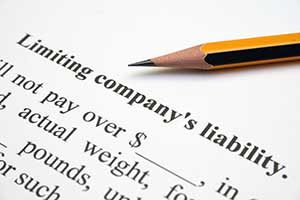
This comparative negligence article was authored by Rhode Island Slip and Fall lawyer, David Slepkow. Please read this RI legal article very carefully. David Slepkow answers the following questions:
- What is pure comparative negligence in RI?
- What is modified comparative negligence in Massachusetts?
What is pure comparative negligence in Rhode Island
“The principle that reduces a plaintiff’s recovery proportionally to the plaintiff’s degree of fault in causing the damage.” lawshelf Comparative negligence is the the law used in negligence cases involving injury when the victim is at least partially at fault for his own injury. Comparative negligence is determined by a jury after a trial on the merits. The jury may determine what percent each party involved in a crash or fall is at fault for the mishap. Rhode island has pure comparative fault. This means that a victim who is more than 50 percent at fault for an accident can still recover damages proportionally to his degree of fault. In Providence, even if an injured person is 94 percent at fault for an accident they are still eligible to obtain damages of 6 percent from the negligent person or entity. You should contact a RI Slip and Fall lawyer to obtain an initial opinion as to whether or not there was comparative fault involved.
Massachusetts law: Modified comparative negligence
Massachusetts has modified comparative negligence laws. If a victim is more than 50 percent at fault for the accident, the victim can receive no compensation as a result of the accident.
“Contributory negligence shall not bar recovery in any action by any person or legal representative to recover damages for negligence resulting in death or in injury to person or property, if such negligence was not greater than the total amount of negligence attributable to the person or persons against whom recovery is sought, but any damages allowed shall be diminished in proportion to the amount of negligence attributable to the person for whose injury, damage or death recovery is made. In determining by what amount the plaintiff’s damages shall be diminished in such a case, the negligence of each plaintiff shall be compared to the total negligence of all persons against whom recovery is sought. The combined total of the plaintiff’s negligence taken together with all of the negligence of all defendants shall equal one hundred per cent.” MA law
